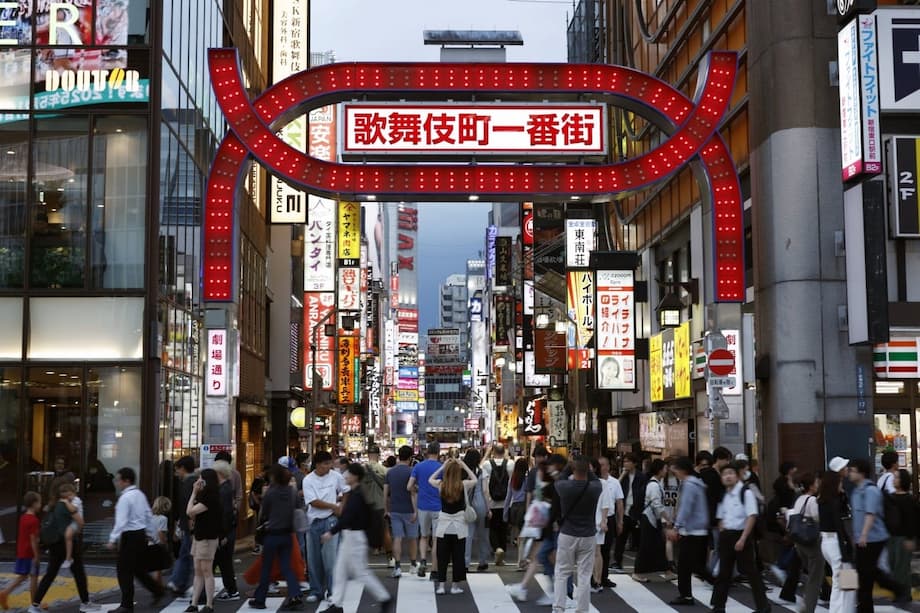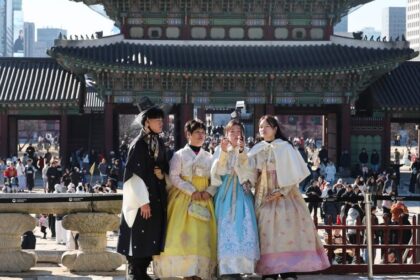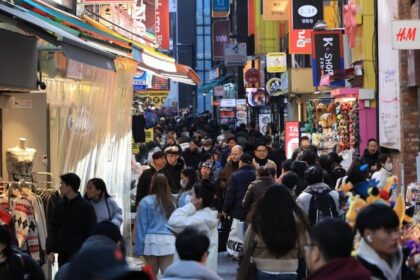Japan’s New Lodging Taxes: Will They Deter Hong Kong Tourists?
Japan’s enduring appeal as a travel destination for Hongkongers shows no sign of waning, even as the country’s municipalities roll out new and higher lodging taxes to combat overtourism. With cities like Kyoto leading the charge in raising accommodation taxes—some by as much as tenfold—questions have arisen about whether these measures will dampen the enthusiasm of Hong Kong travelers. Industry experts, government officials, and travelers themselves, however, suggest that the bond between Hong Kong and Japan remains robust, with cultural ties, proximity, and unique experiences outweighing the impact of new fees.
- Japan’s New Lodging Taxes: Will They Deter Hong Kong Tourists?
- Understanding Japan’s Lodging Taxes: What’s Changing?
- Why Are Hong Kong Tourists Unfazed?
- The Broader Context: Overtourism and Sustainable Travel
- Comparing Japan and Hong Kong: Tax Trends and Tourism Strategies
- What’s Next for Hong Kong Tourists Visiting Japan?
- In Summary
Understanding Japan’s Lodging Taxes: What’s Changing?
Japan’s accommodation taxes are not new, but recent years have seen a dramatic expansion in both their scope and scale. As of mid-2025, 42 municipalities have either implemented or announced plans to introduce lodging taxes at hotels and traditional ryokans (Japanese inns). The rates vary widely, from as little as 200 yen (about US$1.40) per night for budget accommodations to as much as 10,000 yen (about US$68) per night for luxury stays in cities like Kyoto. These taxes are levied per guest, per night, and are typically collected at check-in or check-out.
The rationale behind these taxes is clear: Japan is experiencing a tourism boom, with inbound arrivals surging past pre-pandemic records. In the first half of 2025 alone, the country welcomed 21.5 million overseas travelers, with Hong Kong ranking as the fourth-largest source of visitors. Local governments say the new levies are essential for maintaining and upgrading tourism infrastructure, managing congestion, and preserving the quality of life for residents.
According to a Kyodo News survey, 728 out of 1,723 local governments polled expressed interest in introducing lodging taxes, signaling a nationwide trend toward using tourism revenue to address the challenges of overtourism.
Kyoto’s Steep Tax Hike: A Case Study
Kyoto, Japan’s ancient capital and a perennial favorite among Hong Kong tourists, is at the forefront of this movement. In January 2025, city officials announced a plan to raise the top lodging tax rate to 10,000 yen per person per night for rooms priced at 100,000 yen or more. The new tax schedule, expected to take effect in March 2026, introduces five tiers, with even budget accommodations facing a minimum tax of 200 yen per night. The city projects that these changes will more than double annual tax revenue, generating over 10 billion yen (about US$63 million) to fund infrastructure, disaster response, and projects benefiting both tourists and residents.
Kyoto’s mayor, Koji Matsui, has emphasized that the funds will be used not just for tourism promotion but for the broader well-being of the city. The move comes amid growing concerns about overcrowding, strained public transport, and the impact of mass tourism on local culture—issues that have prompted other measures, such as restricting pedestrian access in the historic Gion geisha district to protect traditional practices.
How Do Japan’s Taxes Compare to Other Destinations?
Japan’s approach to tourism taxation is part of a global trend. Cities like Barcelona and Venice have introduced their own visitor fees to manage crowds and fund local services. In Japan, the specifics vary by city:
- Tokyo: No tax for rooms under 10,000 yen; 100 yen for 10,000–15,000 yen; 200 yen for over 15,000 yen.
- Osaka: No tax under 7,000 yen; up to 300 yen for rooms over 20,000 yen.
- Kanazawa: 200–500 yen depending on room price.
- Kutchan (Hokkaido): 2% of accommodation fare per night.
In addition to lodging taxes, all travelers departing Japan pay a 1,000 yen international tourist tax, and a 10% consumption tax applies to most goods and services. These fees are generally considered modest compared to hotel taxes in some Western cities, where nightly surcharges can be significantly higher.
Why Are Hong Kong Tourists Unfazed?
Despite the rising costs, Hong Kong’s appetite for Japanese travel remains strong. Industry leaders, such as Steve Huen Kwok-chuen, executive director of EGL Tours (a major Hong Kong-based tour operator specializing in Japan), have stated that the new taxes are unlikely to significantly affect tour prices or demand. The additional charges, while noticeable, represent a small fraction of the overall travel budget for most visitors.
Steve Huen Kwok-chuen explained, “The additional tax is unlikely to push up the prices of tours to the country. Hongkongers’ enthusiasm for travelling to Japan is expected to remain robust even as more municipalities in the country plan to impose lodging taxes to ease overtourism.”
Several factors underpin this resilience:
- Cultural Affinity: Japan’s unique blend of tradition and modernity, its cuisine, shopping, and seasonal attractions (like cherry blossoms and autumn foliage) have long captivated Hong Kong travelers.
- Proximity and Convenience: With frequent direct flights and a short travel time, Japan is an accessible getaway for Hongkongers.
- Value Perception: Even with higher taxes, Japan’s reputation for quality service, safety, and cleanliness makes it a preferred destination.
- Currency Advantage: The weaker yen in recent years has offset some of the increased costs, making Japan relatively affordable for Hong Kong visitors.
According to data from Japan’s tourism authorities, 2.68 million Hong Kong residents visited Japan in 2024, accounting for 7.3% of all foreign tourists. While there was a temporary dip in June 2025 due to safety concerns over a predicted “megaquake,” demand quickly rebounded, underscoring the enduring appeal of Japan for Hong Kong travelers.
Traveler Perspectives: Will Higher Taxes Change Habits?
On travel forums and social media, Hong Kong tourists have expressed a pragmatic view of the new taxes. Many acknowledge the need for Japan to manage overtourism and maintain its world-class visitor experience. Some travelers suggest that if certain cities become too expensive, they may opt to stay in nearby areas and make day trips, similar to how visitors approach destinations like Venice, which has introduced its own day-tripper charge.
Others point out that hotel taxes in cities like New York or Paris can be even higher, and that Japan’s transparency about how the funds will be used—such as improving public transport or preserving cultural sites—makes the fees more palatable.
A frequent Hong Kong traveler to Japan commented on a popular forum, “If the tax helps keep Kyoto beautiful and less crowded, I’m happy to pay a bit more. It’s still a great value compared to other destinations.”
The Broader Context: Overtourism and Sustainable Travel
Japan’s tourism boom has brought both economic benefits and new challenges. Inbound tourism is now the country’s second-largest export sector, with foreign visitor spending reaching 7.2 trillion yen annually as of early 2024. The government aims to double this figure by 2030, making tourism the top export. However, the surge in visitors has led to overcrowding at popular sites, strained infrastructure, and concerns among residents about the impact on daily life.
Overtourism is not unique to Japan. Cities worldwide are grappling with the need to balance economic gains from tourism with the preservation of local culture and quality of life. In Japan, surveys show that while about 40% of residents in major tourist cities welcome the influx, nearly half report negative impacts, such as crowded transport and reduced access to local facilities. The majority attribute overtourism to foreign visitors, but also recognize the economic benefits, including more choices in shops and restaurants.
To address these challenges, Japan is adopting a multi-pronged approach:
- Lodging Taxes: Used to fund infrastructure, waste management, and preservation projects.
- Behavioral Nudges: Creative reminders and alternative photo spots to encourage respectful tourist behavior.
- Regulatory Measures: Restrictions on access to sensitive areas, such as Gion’s private alleys in Kyoto.
- Stakeholder Engagement: Involving local communities in tourism management through Destination Management Organizations (DMOs).
Experts argue that effective tourism management requires balancing the interests of visitors, residents, and businesses, ensuring that the benefits of tourism are widely shared and that negative impacts are minimized.
Comparing Japan and Hong Kong: Tax Trends and Tourism Strategies
Interestingly, Hong Kong has also introduced its own 3% hotel accommodation tax, effective January 2025, in an effort to address a budget deficit. While some travelers and hoteliers in Hong Kong have expressed concern that this could deter visitors, the city’s experience mirrors Japan’s in seeking to leverage tourism revenue for public benefit. The difference lies in the motivation: Japan’s taxes are primarily aimed at managing overtourism and preserving local quality of life, while Hong Kong’s are driven by fiscal needs.
Both destinations face the challenge of maintaining their attractiveness while ensuring sustainable growth. For Japan, the focus is on channeling tourism revenue into infrastructure and community projects, while for Hong Kong, the priority is fiscal stability. In both cases, the resilience of demand—especially from regional travelers—suggests that moderate increases in taxes are unlikely to fundamentally alter travel patterns.
What’s Next for Hong Kong Tourists Visiting Japan?
For Hong Kong travelers planning trips to Japan, the key takeaway is that while accommodation costs may rise modestly due to new taxes, the overall experience remains largely unchanged. Most taxes are transparent, easy to understand, and are being reinvested in ways that enhance the visitor experience—whether through cleaner streets, better transport, or preserved cultural sites.
Travel experts recommend that visitors stay informed about the latest tax rates in their chosen destinations, as these can vary by city and accommodation type. For those on a budget, options remain plentiful, with lower-tier taxes applying to more affordable hotels and guesthouses. For luxury travelers, the higher taxes are unlikely to be a deterrent, given the overall value and exclusivity of the experience.
Ultimately, the enduring appeal of Japan for Hong Kong tourists lies in the country’s unique blend of tradition, hospitality, and modern convenience—a combination that even higher taxes are unlikely to diminish.
In Summary
- Japan is expanding and increasing lodging taxes to manage overtourism and fund infrastructure, with Kyoto leading the way.
- Rates range from 200 yen to 10,000 yen per night, depending on accommodation type and location.
- Hong Kong tourists remain enthusiastic about visiting Japan, with industry experts predicting minimal impact on demand.
- Japan’s approach reflects a global trend toward sustainable tourism, balancing economic benefits with quality of life for residents.
- Hong Kong has introduced its own hotel tax, but both destinations remain attractive to regional travelers.
- Travelers are advised to check local tax rates but can expect continued value and unique experiences in Japan.












